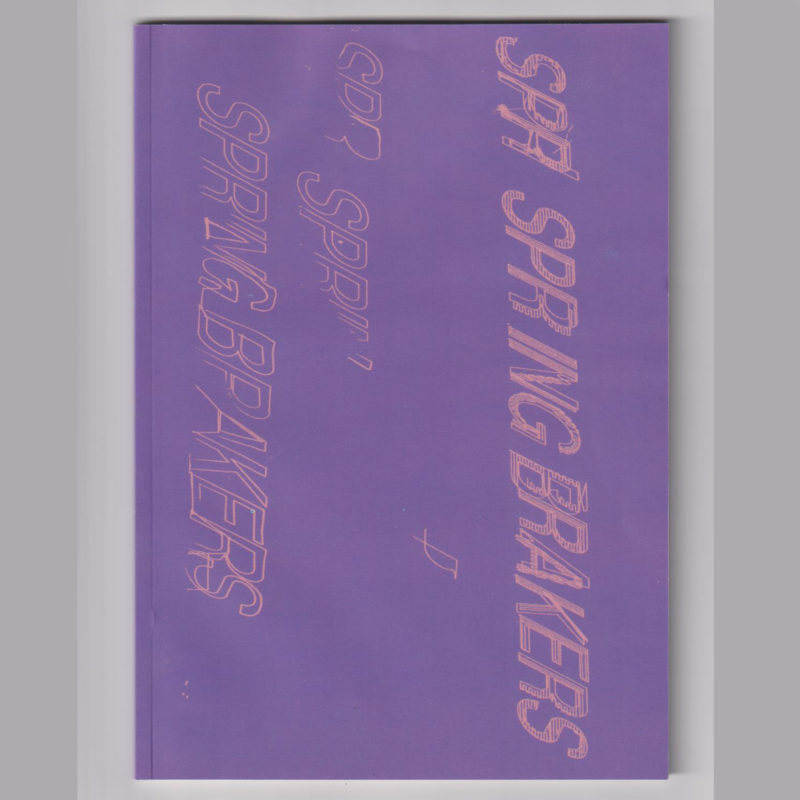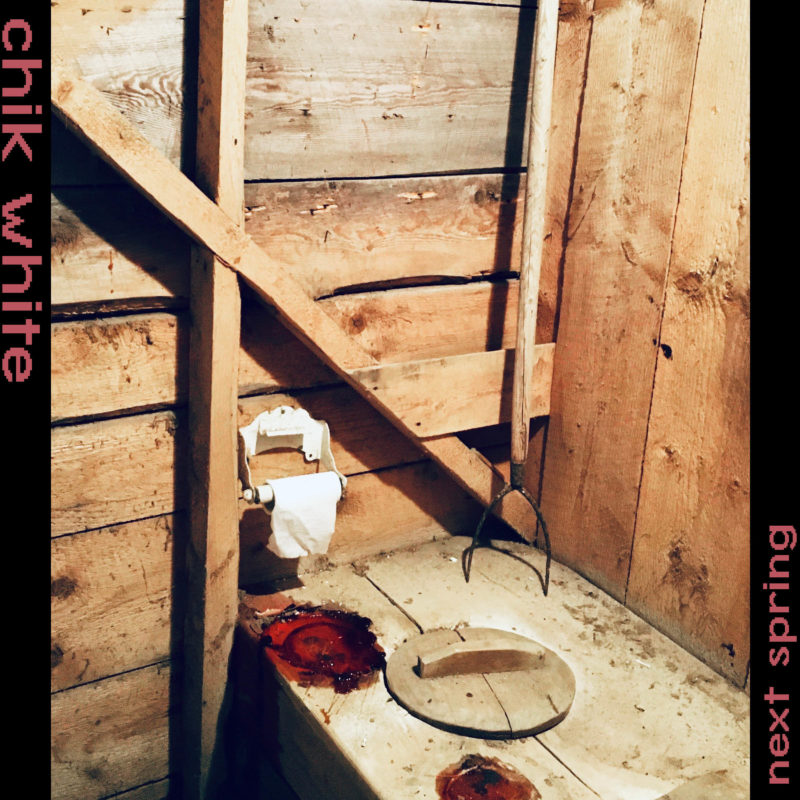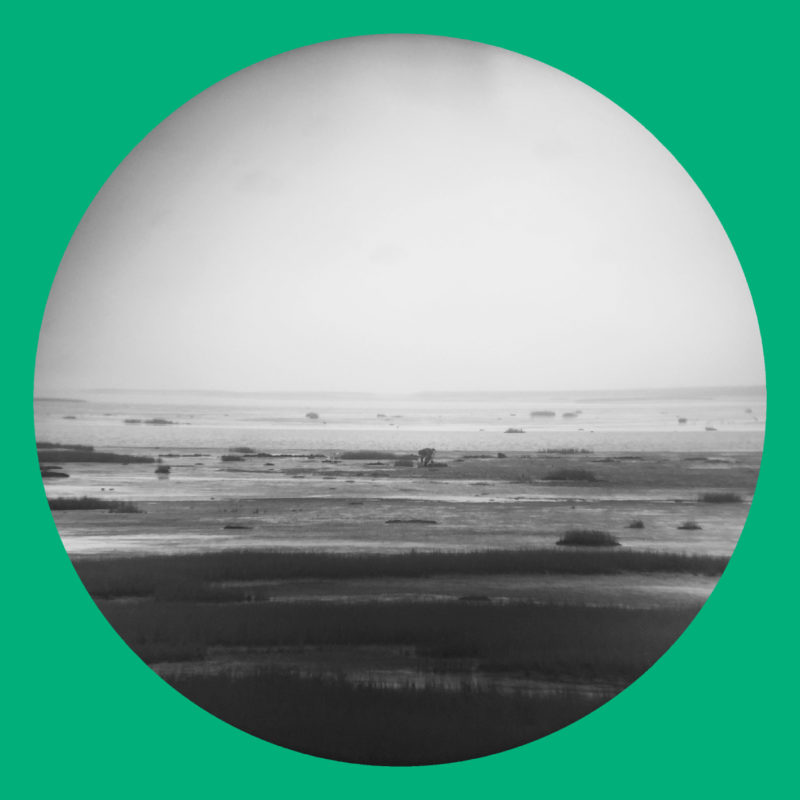Chik white
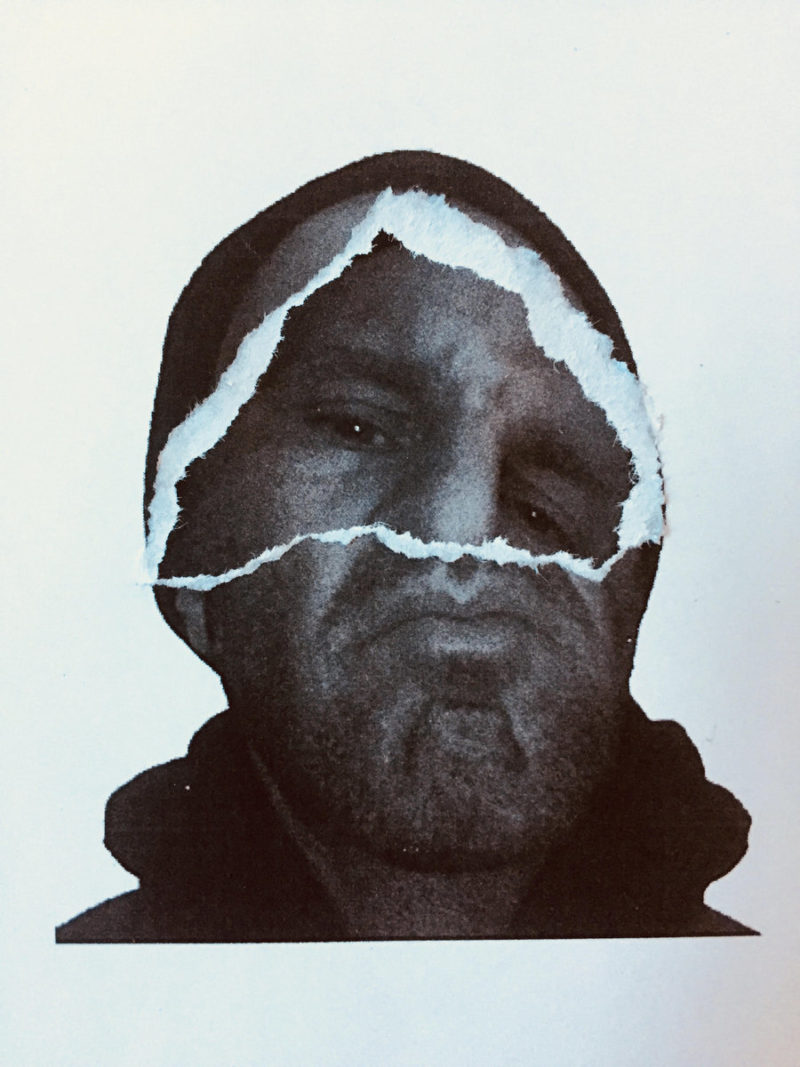
This interview is published in the liner notes of the guts magnet sea album, that will be out on November the 10th on KRAAK. chik white performs on that same date at Table Dance (Antwerp), within the infamous BRAUBLFF (materie und laut) series.
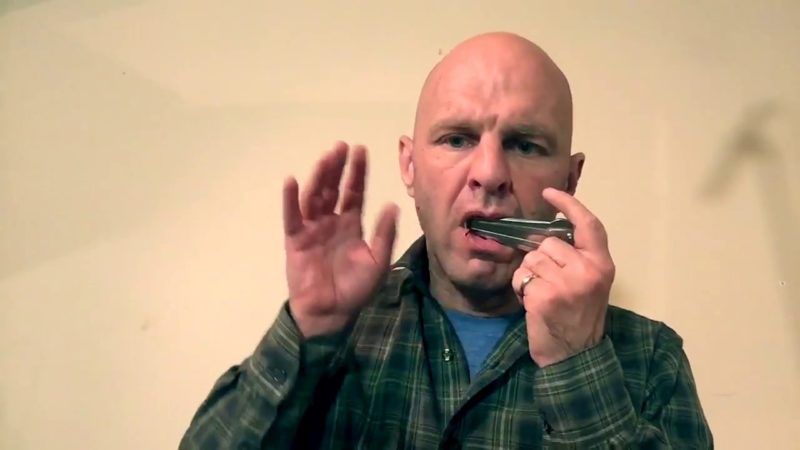
Niels Latomme
First question, for the biographical aspect of this release. Tell me a bit from where you come, and from where and how you evolved into the jews harp and tape music?
Darcy Spindle/chik white
I grew up in small seaside towns around Nova Scotia and then moved to Halifax for school, where I studied Philosophy. I built a life in the city, playing in bands and working bad jobs. Eventually I started a few more serious endeavors, including an experimental music festival called OBEY Convention. I also started working in film. About a decade ago, along with my wife and then-newborn daughter, I moved to a rural community on the Eastern Shore of the province, a beautiful and rugged place called Chezzetcook. And that’s around the time I started playing jaw harp.
I’d kind of stopped playing in bands when my daughter was born. I also lost regular contact with my cohorts in the city. Big changes. Then one day someone just gave me a toy jaw harp, and I got really into it. Simple as that. I found it almost addictive to play. I could carry it around in my pocket when I was out hiking. I started taking it the beach and playing with the waves for hours at a time. I found a very strange community of jaw harp players online as well – basically a really antiquated newsletter and website. I started researching this obscure history and found it super intriguing. At the same time, I was starting to collect good quality handmade harps from various builders. These harps were more dynamic and interesting to play than the toy I’d been carrying around. Everything just evolved from there. I started recording and eventually incorporated my interests in avant-garde music and art. I still just really love playing jaw harp. I play it every day.
nl
In one way there is something contradicting in your music: at the one hand it fits into an almost holistic – without the spiritual, or esoteric connotation – whole. Your tracks seem to be part of nature, and your involvement in it. But at the same time is the instrument a very isolated thing, as the sound is literally going through you head – which postulates a solipsistic approach. What do you think about this contradiction?
ds/cw
An interviewer once described an album of mine as a “field recording of the body.” That concept really describes my thinking. I’m interested in the minute sounds of my mouth, throat, breath, face, etc. I use a contact mic on my windpipe and a very sensitive condenser mic out front to capture all those fleshy animal sounds. I think of that sonic field as a sort of biological landscape no different than the beach down the road. It’s all the same stuff operating under all the same rhythms and natural laws. And the jaw harp is just basically teasing and accentuating all this noise from my body—the instrument doesn’t really have a sound without having the mouth as a resonating chamber. The jaw harp does have a certain character though—it sounds and feels to me like a true distillation of nature. It centres me in the same way a hike along the coastline does. And it sounds like birds, insects, waves, and wind. Beyond all that, I simply use see the jaw harp as a bridge between myself and the outer world. Hard to describe. I’m likely just losing my mind (could be the harp’s fault).
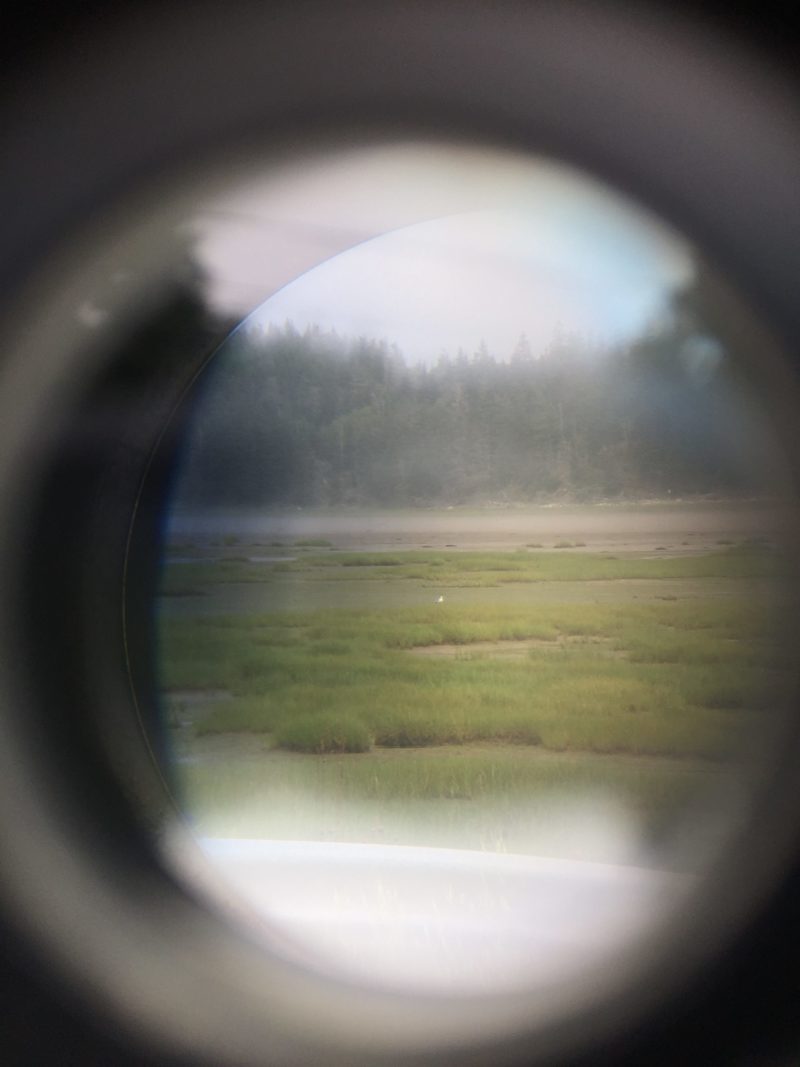
nl
Your music seems to have a great ecologic awareness. This record on KRAAK even seems to work on this theme, as a big chunk of the tracks where recorded on tape and then thrown into the sea to let destructive forces of the ocean work upon the sounds. Are you dealing with ecological issues in you work on an overtly activist and political level; or are you more interested in the poetic point of view, where mankind is nothing but some dust in the universe?
ds/cw
Once I moved out to the coast, the awesome power of the weather and the ocean became very obvious to me. We really see the effects on climate change in my neighborhood. Ocean swells wash away roads. People are losing property to the sea. Our roofs get blown off every winter. The very first chik white tape was called Highest Tide, and that theme stuck ever since. It just feels to me like the ocean will swallow the earth eventually. Or maybe we’ll be hit by an asteroid. Or maybe it will all burn. Whatever the case, our time here is likely short. It would be cool if we could survive as a species forever (I’m certainly pro human). But that seems unlikely. In the context of the universe and the expanse of time, it’s like we don’t even exist. We’re nothing. There’s something very refreshing about that. But at the same time, it’s incredible that we get to experience human consciousness and bear witness to all that surrounds us.
So as far as being an activist, yes and no. I consider myself an environmentalist in the sense that I try to keep my neighborhood clean, and I make efforts to lower my impact on the environment. At the same time, I do think it’s just a matter of time before the earth changes radically and perhaps becomes uninhabitable for many of the living things that are here now. There’s certainly something poetic about that – eventually there will be no memory of anything that exists now. As for the Kraak tape collages, I think of them as a soundtrack for our extinction—like a distant communication from the last humans last days on Earth, or maybe it’s what the Earth sounds like once we’re gone and it’s all water. And of course, the idea of using the ocean itself to create this sound seemed to me like an honest approach to the compositional task.
nl
How did you make the pieces on the record?
ds/cw
For the collages, to start I collected recordings of water from around my community. Waves are pretty much my favorite sound. The rhythms are so organic. There are just so many dynamics and frequencies. It sounds amazing. So yeah, I did a few weeks of field recording on cassette, and I dumped a few long-form harp improvisations on there as well. I unspooled the cassette, stuffed it in a small bit of netting I found in a lobster trap, attached a long string to the net, then tossed the whole thing into the tidal marsh across from my house and left it there for a month. When I pulled it back in, the tape was destroyed and caked in salt. I digitized a couple metres of tape at a time—that’s as much as I could spool onto a cassette and still have it play. After that, it was just a matter of editing the short clips into coherent compositions. Once the tape was out of the water, the process took me probably a hundred hours or more. Very labour intensive.
nl
You are a writer of filmscripts, and (based on the trailers) they have campy vibe to them. Is this consciously?
ds/cw
I write feature-length screenplays with director Seth Smith. We make what you might call elevated, arthouse horror films. So I guess the trailers have a genre aesthetic to them. But I think there’s a seriousness and artistry to our movies that’s different from most horror films. I also have a few new projects in the works that are big departures from the previous films, including a philosophical sci-fi mediation on consciousness and a somber relationship drama about eating flesh.
nl
Your music reminds of the outcasts characters in the books of Samuel Beckett. There is a gnarly outsider vibe to it, of isolated individuals being alone in nature – almost the so-called buddhist “drops in the ocean”, characters that reached a twisted nirvana. Do you see your music that way?
ds/cw
I certainly feel like an outcast. ha. And I’m searching for something through my art, no doubt. It’s a very introspective and singular journey, but I think art is often like that. On the other hand, I live in a house with my family. I’m connected to certain communities. I play my part. But sure, it’s easiest to get this work done when I’m by myself; being in wild places helps too.
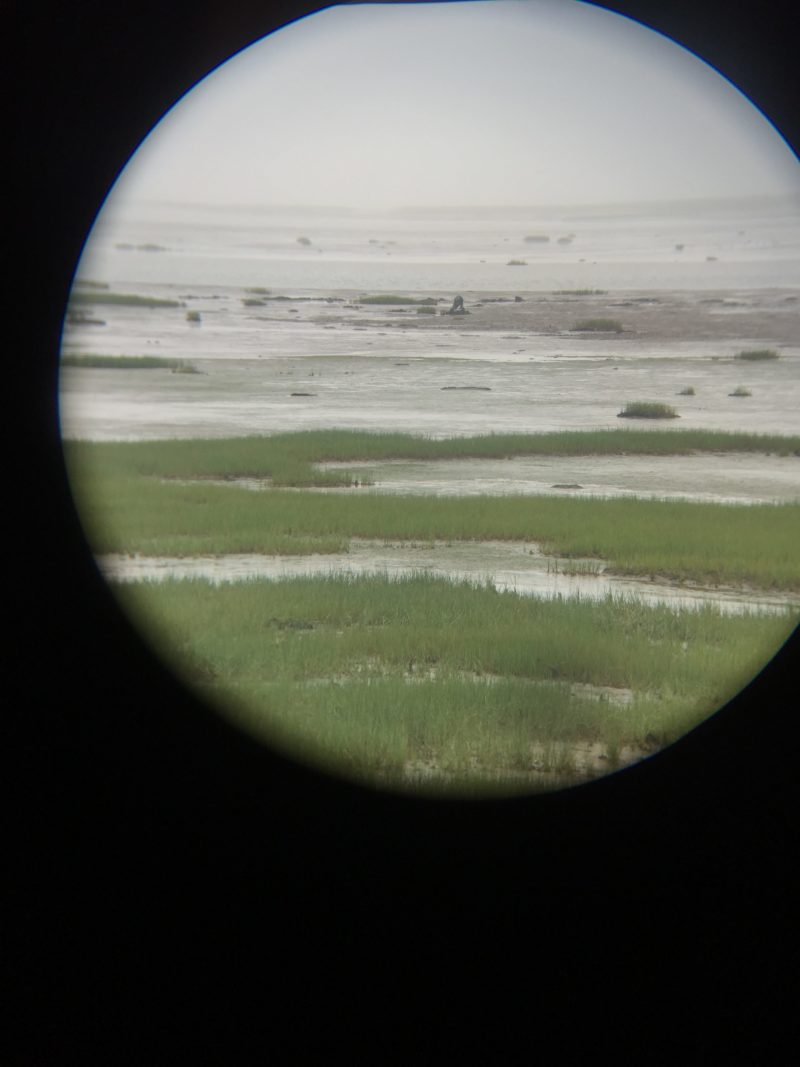
nl
Based on the liner notes of the albums, your musical technique is to set out into nature, and play against it. Is it like that, and why?
ds/cw
When I do fielding recordings with harp, I play as if I’m part of nature, which, of course, I am. I listen and respond. There isn’t a competitive element. As far as technique, I also do a lot of straight solo improvisation in my back shed. With that stuff, I’m very interested in exploring both the instrument and my voice. But again, it’s about listening and responding – in the case of up-close studio recording, I’m listening for my breath, heartbeat, the sound of my finger brushing the metal trigger of the harp, the slosh of saliva in my mouth, my tongue. It’s this weird feedback loop of my body responding to the sound of itself via this little metal reed in my mouth the anchors it all together.
nl
When people in avant-garde music think jews harp, they think Daniel Higgs and Anton Bruhin. Do you see a relation between your work and theirs?
ds/cw
I came across both of these artists very soon after I got my first jaw harp. Higgs’ Magic Alphabet is one of my favorite jaw harp records. And you can probably hear its influence on my first few cassettes (Highest Tide in particular). Bruhin’s approach helped me think about jaw harp as more of an avant-garde instrument. His music was a real launching off place for some of the stuff I’m doing now, though I don’t think my work sounds much like his. At this point, I’m as much influenced by sound poetry, noise, and free improvisation as I am by any particular jaw harp album or musician.
nl
Thanks for the interview!
